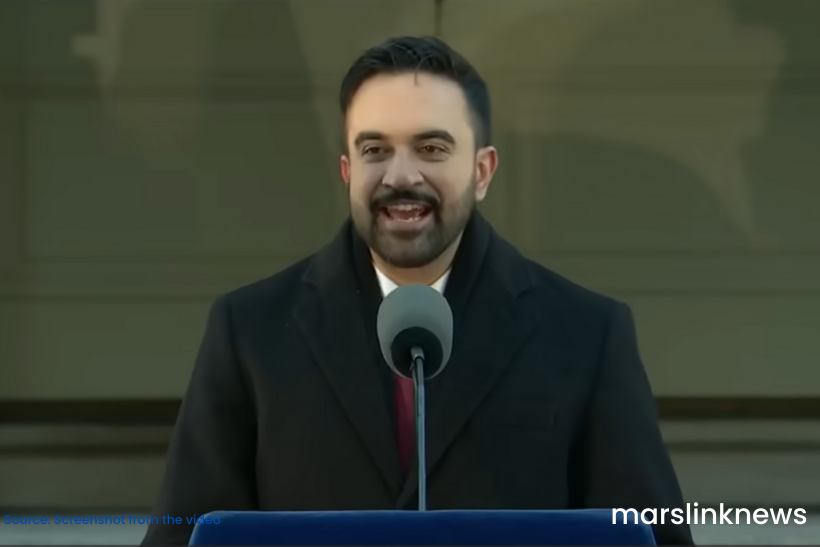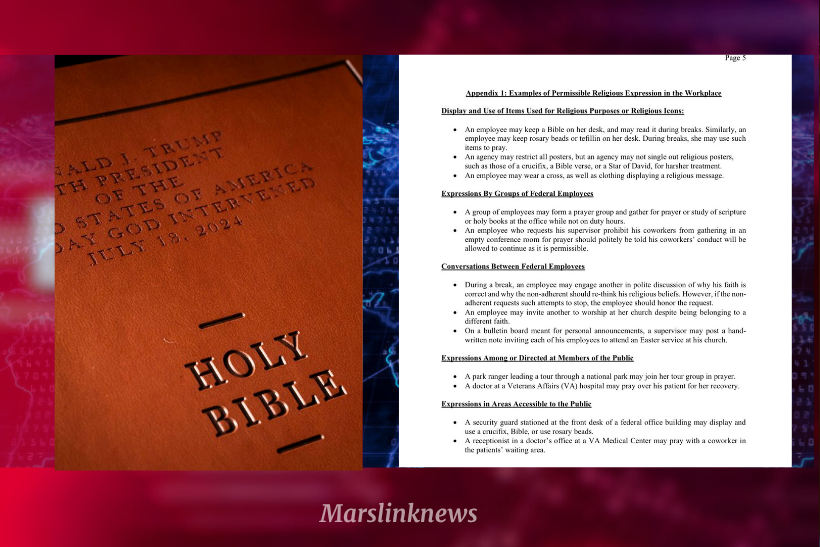Breaking News


Fast, Reliable, and Uncensored News Coverage

The Trump administration issued new guidance Monday requiring federal agencies to protect religious expression in the workplace, allowing employees to display religious symbols including crucifixes, Bibles, and Stars of David.
The Office of Personnel Management sent the directive titled “Protecting Religious Expression in the Federal Workplace” to all federal agencies. OPM Director Scott Kupor authored the memo detailing the new requirements.
Federal workers can now display Bibles, crucifixes, or mezuzahs on their desks. They may pray in groups while off-duty and invite colleagues to church services. Employees can speak about their religious beliefs without fear of reprisal.
“Federal employees should never have to choose between their faith and their career,” Kupor said in the memo obtained by Fox News Digital.
The guidance permits employees to keep rosary beads or tefillin on their desks and use them for prayer during breaks. Workers may read religious texts during non-work time.
Employees can engage colleagues in religious discussions during breaks. The guidance states workers may explain why their faith is correct and encourage others to reconsider their beliefs. However, employees must stop if asked.
Supervisors may post handwritten notes on bulletin boards inviting staff to religious services. Park rangers may join tour groups in prayer. Veterans Affairs doctors may pray over patients for recovery.
Agencies must allow personal religious expression unless it imposes undue hardship on operations. They must review and revise internal policies to protect religious expression.
The memo states that religious discrimination in federal workplaces violates the law. It cites the First Amendment and Title VII of the Civil Rights Act of 1964 as protecting religious expression.
The guidance builds on Executive Order 14202 signed in February and Executive Order 14291 signed in May. Both orders address religious liberty protections in government.
Federal agencies must adopt a generous approach to religious accommodations. This includes allowing time off, telework, and flexible schedules for religious observances when feasible.
The new policy applies to all federal departments and agencies. It represents one of the most comprehensive religious expression protections for federal workers in decades.